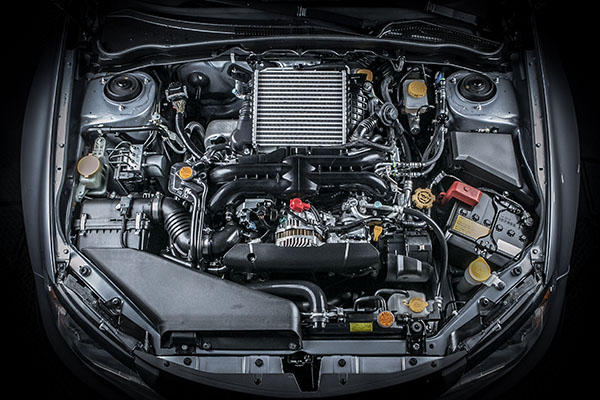Posted on 7/27/2023

Fleets play a crucial role in various industries, serving as the backbone of transportation and logistical operations. To ensure optimal performance, reliability, and safety, fleet vehicles require regular servicing and maintenance. Let's take a look at why this is mandatory and very important for your fleet and logistics network. Maximizing Vehicle Reliability Fleet vehicles are subjected to extensive usage and demanding operating conditions. Regular servicing and maintenance help maximize their reliability. Routine inspections, fluid checks, and preventive maintenance ensure that potential issues are identified and addressed before they become major problems. This minimizes the risk of breakdowns, delays, and unexpected downtime, allowing fleet vehicles to remain operational and fulfill their designated tasks. Extending Vehicle Lifespan Fleet vehicles are significant investments for any business. Proper ser ... read more
Posted on 6/29/2023

When it comes to pushing automotive boundaries and extracting extraordinary power from performance vehicles, Hennessey Performance Engineering stands as an industry icon. Renowned for its relentless pursuit of speed and performance, Hennessey has cemented its reputation as a leading aftermarket tuning company. Founded by John Hennessey in 1991, Hennessey Performance Engineering (or simply Hennesy) set out to transform ordinary vehicles into high-performance machines that defy conventional limits. What began as a one-man operation in Texas has grown into a globally recognized brand, synonymous with uncompromising performance upgrades. Venomous Achievements Hennessey is renowned for their expertise in extracting mind-boggling horsepower from a wide range of vehicles. Whether it's modifying supercars, muscle cars, trucks, or SUVs, Hennessey engineers leave no stone unturned in their pursuit of sheer automotive power. Their dedication to research a ... read more
Posted on 5/31/2023

Your vehicle is a complex machine that requires regular maintenance to keep it running smoothly and efficiently. One of the most important things you can do to keep your vehicle in top condition is to get a tune-up, but at the same time, it's widely forgotten. A tune-up is a series of maintenance tasks that help ensure that your vehicle is operating at its best. That's why we have made a list of five ways you can tell your vehicle needs a tune-up! Poor Fuel Efficiency If you’ve noticed that you’re getting fewer miles per gallon than usual, it could be a sign that your vehicle is long overdue for a tune-up. A tune-up can help identify any issues that are causing your fuel efficiency to decrease, such as a dirty air filter, faulty spark plugs, or even bad timing. Engine Misfires Engines misfire when one or more cylinders in your engine are not firing correctly. This can cause your vehicle to run rough, idle poorly, and lose power ... read more
Posted on 4/30/2023
.jpeg)
When you think about the different components that make up a car, one important part that often goes unnoticed is the axle. The axle plays an important role in the vehicle's drivetrain system, enabling the wheels to rotate and transfer power from the engine. Below, we will explore what the axle does, where it is located, and provide you with some essential maintenance tips to keep it in good condition. The function of the Axle The primary function of the axle is to transfer power from the engine to the wheels, allowing the car to move. It serves as a central shaft that connects the wheels on either side of the vehicle. When the engine generates power, it flows through the transmission and then to the axle, which distributes the power equally to the wheels. This power transmission enables the vehicle to move forward or backward. Location of the Axle The axle is located underneath the vehicle and runs from the front to the rear. In most vehicles ... read more
Posted on 3/15/2023
.jpeg)
With the snow melting away and the weather starting to look more like spring, your car will need some care. Why? Because during the winter, parts and systems in your vehicle have gone through some wear. Also, certain things have to be done at least once per season to make sure your vehicle will last as long as possible. From tires to particular maintenance of the engine systems, all of them are important and should not be ignored. That's why we will give you five of the most important things to check before you go into the 2023 spring season. Tires Tires are widely ignored or driven until they obviously need changing. The first thing you should do is change them for a new set appropriate for the correct season and weather. Then go in for a quick wheel alignment and pressure check. This is the bare minimum you should consider doing - it will greatly improve grip and the ability to control the vehicle. Tune-Up One of the best things you can do afte ... read more